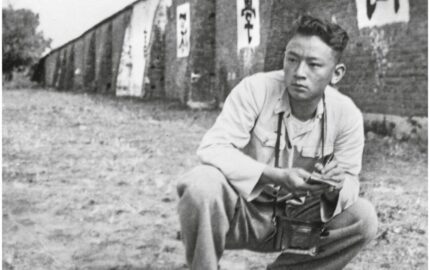
Politico and Random House are joining forces to publish a series of e-books about the 2012 campaign. “The Right Fights Back” is the first.
As a once and I hope future author, I'll confess that in certain moods a bleak scenario can cross my mind. Just my luck, and that of other journalists of my generation, that a good nearly six-century run in the publishing business might be about to perish—the victim of changes in technology and audience tastes—at the very moment we are ready to write.
These fears—like many anxieties that people comfortable with familiar paths hold about disruptive technologies—may prove overwrought. With luck, one hopes, in retrospect they will even come to seem ridiculous.
And yet there is no denying that the digital era has not on balance been a friend to long-form narrative. The historic shift has weakened daily newspapers, imperiled some fine magazines, and seems likely to be in the early stages of launching a similar upheaval in the book publishing industry. It is not just business models that are changing. The proliferation of information—abetted by the omnipresence of devices to carry that information to us at all times and in all settings—at times seems to be affecting the very nature of the human mind and its capacity for the sustained concentration that lengthy articles and books demand. One friend adapts with a self-imposed rule about paragraphs in the modern age: Never longer than can appear in a single BlackBerry screen. Months of enterprise reporting may never find an audience unless it can be cleverly reduced to 140 characters on Twitter in the hope of going viral.
Now I am starting to sound like something I and my colleagues at Politico have vowed not to be—pessimists. As journalists, the group of us who joined five years ago to start a publication devoted to national politics and the workings of Washington made a very purposeful decision that we would not live our journalism careers in a defensive crouch, besieged by unwanted change, longing nostalgically for some rapidly receding golden age. To the contrary, Politico has found editorial and business success by embracing technological change and trying vigorously to dominate a niche: content aimed at people who share our intense, even obsessive, interest in politics. Optimism is partly a matter of willpower, but it is partly a rational response to a media marketplace that by our estimate has opened plentiful new opportunities even as it has narrowed others.
Partnering With Random House
Politico is now in the early stages of a collaboration with Random House that reflects the spirit of innovation that we believe is a signature of the publication. The assignment is to produce short digital books—in the range of 20,000 words or so—that will be written in serial fashion. Mike Allen, our senior reporter and cofounder of Politico, will do the reporting for these books and co-write them with veteran magazine writer Evan Thomas. During his career at Newsweek, Thomas was the chief writer for many of the magazine's special issues—some of which were expanded into books—that took readers behind the scenes of presidential campaigns immediately after the election. Our aim is to replicate many of the elements of those books—the vivid portraits of personality, the crises, and the calculations over strategy—and tell these stories in something closer to real time. The first e-book in the Playbook 2012 series, "The Right Fights Back," was published at the end of November.
This is unquestionably an experiment. We'll consider it a success, on the belief that we'll learn something along the way, no matter how the experiment turns out. But we have two reasons for suspecting it will turn out well. One reason is based on concrete knowledge; the other is based on a hunch.
The concrete knowledge is that Politico reporters, and Allen especially, learn more and know more from their reporting than they can ever possibly share with readers through traditional stories on the website. Often the morsels that are in our heads and in our notebooks are tantalizing—crying out for a little more reporting and context to be put in usable form—and yet they get pushed aside in the flood of daily business. The digital book project is a way of ensuring that these tips and anecdotes and character insights don't get pushed aside, and instead are developed and given to readers in a format that puts them in the best light.
Our hunch is that the cycle is about to turn and that long-form nonfiction storytelling is about to have a rebirth in the digital age. Certainly Politico has made its contribution to the trend toward brevity, speed and monomania for the story of the day or even the hour. We are proud of this. These traits are exactly right for certain kinds of stories. Yet as the Web has matured it is harder to stand out through these things alone. The competitive field becomes ever more crowded and intense.
The way to get noticed is to go deeper—to use our sources and our expertise to produce news that competitors would be hard-pressed to match through hustle alone. There will be a new premium, not on length for its own sake, but on the depth necessary to tell original stories in an arresting fashion. People do not want more bursts of data but more orientation—and a more intimate human understanding—of the barrage of news all around them.
The new technologies—iPads and Kindles and other tablet devices—also make the reading experience more absorbing and more congenial for long-form journalism.
A key figure in the Politico/Random House partnership is Jon Meacham, a senior editor with Random House and, of course, a veteran magazine editor and successful nonfiction author. He prodded Politico to join Random House in this e-book experiment.
Meacham and I are kindred spirits in key respects. We both grew up in the old order—in which big established media brands like Newsweek and The Washington Post prospered and had formidable power to set the national agenda. And we both feel the same generational imperative to find a good answer to the critical question "What's next?" at a time when the old order is strained in most cases and has crumbled altogether in others.
What do people want in this frenetic digital age? After everything, my guess is that they want good stories, just as people have always yearned for them and presumably always will. That prospect seems like grounds for optimism to me.
John F. Harris is the editor in chief of Politico.



